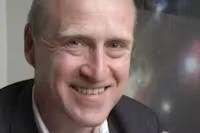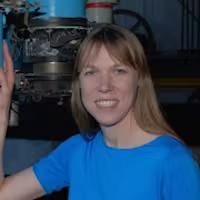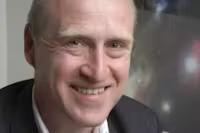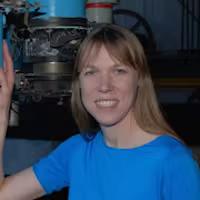Explore the technology driving astronomical discoveries, from telescopes to detectors in this course.
Explore the technology driving astronomical discoveries, from telescopes to detectors in this course.
This course, offered by the University of Edinburgh, explores the crucial role of technology in modern astronomical discoveries. Led by Andy Lawrence and Catherine Heymans, it covers various aspects of astronomical technology, including telescopes, space missions, detectors, computers, and spectroscopy. Each week focuses on a different technology area, connecting it to key scientific discoveries such as understanding stars, black holes, early galaxies, near-Earth objects, and dark energy. The course emphasizes how technological advances enable new astronomical insights, providing students with a comprehensive understanding of both the science and the tools used in contemporary astronomy.
4.7
(1,126 ratings)
20,651 already enrolled
Instructors:
English
پښتو, বাংলা, اردو, 2 more
What you'll learn
Understand the fundamental role of technology in astronomical discoveries
Explain how telescopes work and their application in studying stars
Describe space missions and their importance in black hole research
Understand detector technology and its use in observing early galaxies
Explain the role of computers in astronomical data analysis and near-Earth object detection
Describe spectroscopy and its application in dark energy research
Skills you'll gain
This course includes:
206 Minutes PreRecorded video
6 assignments
Access on Mobile, Tablet, Desktop
FullTime access
Shareable certificate
Get a Completion Certificate
Share your certificate with prospective employers and your professional network on LinkedIn.
Created by
Provided by

Top companies offer this course to their employees
Top companies provide this course to enhance their employees' skills, ensuring they excel in handling complex projects and drive organizational success.





There are 6 modules in this course
This course provides a comprehensive overview of the technology behind modern astronomical discoveries. Over six modules, students will explore various aspects of astronomical technology and their applications in understanding the universe. The curriculum covers telescopes and their role in studying stars, space missions and their importance in black hole research, detectors used to observe early galaxies, computers' role in identifying near-Earth objects, and spectroscopy's contribution to discovering dark energy. Each module connects a specific technology to a key astronomical discovery, demonstrating how technological advancements drive scientific progress. The course emphasizes the interdependence of science and technology in astronomy, providing students with a holistic understanding of how we gain knowledge about the universe. Through video lectures, quizzes, and additional readings, students will gain insights into both the scientific concepts and the technological tools used in modern astronomy.
Science and Technology
Module 1 · 49 Minutes to complete
Telescopes and Stars
Module 2 · 48 Minutes to complete
Space and Black Holes
Module 3 · 1 Hours to complete
Detectors and the First Galaxies
Module 4 · 59 Minutes to complete
Computers and Killer Rocks
Module 5 · 1 Hours to complete
Spectroscopy and Dark Energy
Module 6 · 1 Hours to complete
Fee Structure
Payment options
Financial Aid
Instructors
Regius Professor of Astronomy at Edinburgh: Expert in Quasars and Observational Cosmology
Andrés Ordorica is the Regius Professor of Astronomy at the University of Edinburgh, based at the Institute for Astronomy located at the historic Royal Observatory Edinburgh. His academic journey includes positions at Leicester, MIT, the Royal Greenwich Observatory, and Queen Mary, University of London. He specializes in the study of quasars, which are black holes at the centers of galaxies, and observational cosmology, focusing on large-scale sky surveys and the Virtual Observatory.
Leading Astrophysicist at the University of Edinburgh Specializing in the Dark Universe
Catherine Heymans is an Astrophysicist at the Institute for Astronomy at the University of Edinburgh, where she teaches the course AstroTech: The Science and Technology behind Astronomical Discovery. Her research focuses on the Dark Universe, particularly through weak gravitational lensing, and is supported by the European Research Council under the Horizon 2020 program. Catherine has contributed to significant astronomical surveys, including KiDS, CFHTLenS, and RCSLenS, which are among the largest deep ground-based surveys available. She also engages with the public through various platforms, offering resources such as her short e-book on the Dark Universe and a free Massive Open Online Course (MOOC) on astronomical technology.
Testimonials
Testimonials and success stories are a testament to the quality of this program and its impact on your career and learning journey. Be the first to help others make an informed decision by sharing your review of the course.
Frequently asked questions
Below are some of the most commonly asked questions about this course. We aim to provide clear and concise answers to help you better understand the course content, structure, and any other relevant information. If you have any additional questions or if your question is not listed here, please don't hesitate to reach out to our support team for further assistance.





